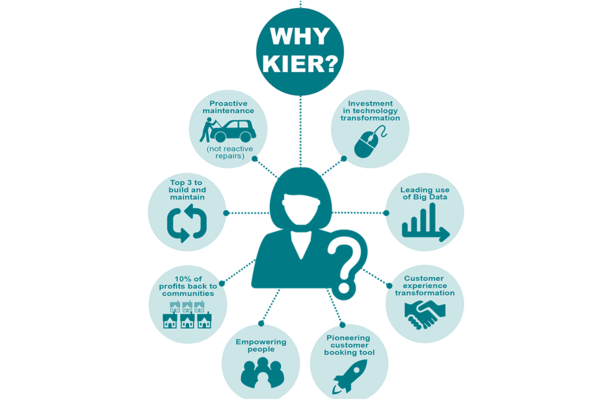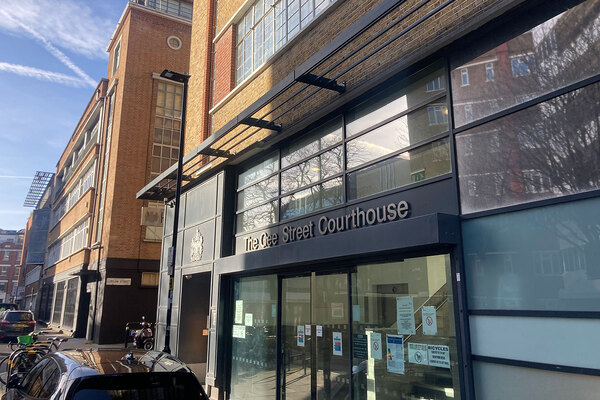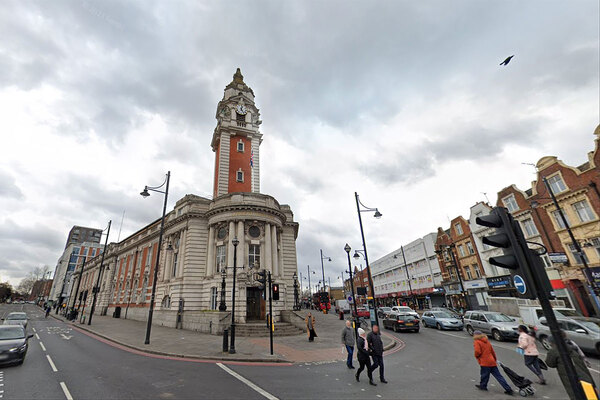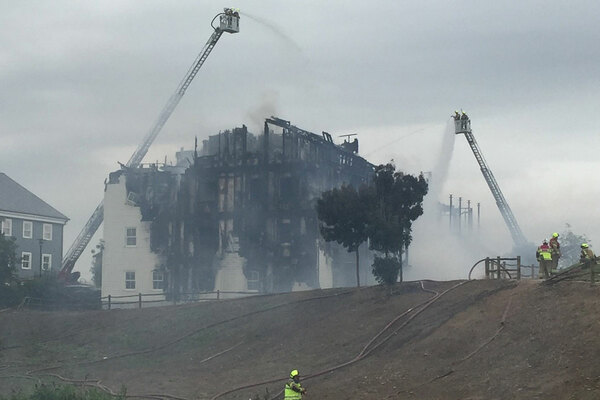The talented Mr Ripley
Jim Ripley is chief executive of Phoenix Community Housing – but he doesn’t regard himself as the boss. Martin Hilditch meets him in a bid to find out why his organisation has been picking up so many plaudits recently.
Jim Ripley is about to celebrate 10 years as chief executive of Phoenix Community Housing, but takes pains to point out that he’s not the boss.
“It’s run by the residents,” he states. “It’s their organisation. They are my bosses.”
Such an attitude may go some way to explaining why Phoenix picked up the “outstanding approach to tenant involvement” at the UK Housing Awards in April. It’s not the only award the 6,000-home landlord has picked up this year. It also bagged a Tpas award for excellence in tenant engagement and popped up on the Sunday Times Best 100 Not-for-Profit Organisations to work for. Ultimate boss or not, Mr Ripley and Phoenix have clearly hit on a winning formula.
The future
Inside Housing has travelled to Lewisham, south London, in a bid to find out more about the talented Mr Ripley and just what is responsible for the landlord’s burgeoning success.
Also, given that Phoenix is the only Community Gateway Association in London, and one of only four in England, does Mr Ripley think the rest of the sector is currently missing a trick?
Is the community gateway model condemned to a life of splendid isolation or could it become a mainstream option?
It’s quickly obvious that, despite being chief executive, Mr Ripley sees Phoenix as very much a team enterprise. He’s made it clear that tenants call the shots (it’s written into the association’s rulebook that the chair and vice-chair must be residents), and he uses the word “we” almost twice as often as “I” while we speak.
Before the interview, we take a whistle-stop tour of Phoenix’s head office, where he introduces numerous staff members and talks with passion about their contribution to the organisation. It’s clear this enthusiasm isn’t just for Inside Housing’s benefit either, as we meet Phoenix’s management accountant, Matthew Piper, who shows off thank you cards he has received from colleagues and the executive team for volunteering his time at a weekend community event (or demonstrating he had “lived our behaviours” if you prefer the corporate jargon). There’s something of a family feel to it all.
“This isn’t about resident involvement, it’s about resident ownership.”
This is, of course, all in keeping with the community gateway model. Developed by the Confederation of Co-operative Housing and Co-operatives UK, they are designed to maximise community involvement by making sure tenants and leaseholders have a strong voice at all levels of decision making – and tenants take up half the spaces on Phoenix’s 12-strong board.
“This isn’t about resident involvement, it’s about resident ownership,” Mr Ripley states. “The best people to run communities and homes are the people who live in the communities and homes.
“To me that is the starting point.”
Community space
For Phoenix, this involvement spills into every aspect of its operation. The organisation is based in a former pub – The Green Man – that has been transformed into a hybrid of an office and community space. A market, in which tenants sell goods they have made, operates from the building on Mondays and a youth club runs on Tuesday evenings. It has a wedding licence and an alcohol licence.
“We want people to come here,” Mr Ripley says. “The architect’s inspiration was the Royal Festival Hall. The idea is that the staff are never far away from the customer.”
Or, to put it another way: “I can’t hide from the residents,” Mr Ripley says with a smile.
Truth be told, Mr Ripley doesn’t seem to be one to hide away, although his desk in the open plan office is concealed behind a mini-jungle of pot plants. He wears his heart on his sleeve too, exclaiming “yes!” in the middle of our conversation as his son texts to say he has passed his driving test and when stating that a Phoenix development of 60 extra care apartments at Hazelhurst Court feels “personal” because his mother has dementia.
“Say I worked for a really big housing association. I would really care about its mission but I would feel slightly removed from the consequences of my actions.”
He’s something of a sentimentalist as well – despite the derelict Green Man having been demolished to make way for Phoenix, mementos from the pub are still dotted around the office.
“I had to fight for the bits and pieces,” he says. “I like the old stuff.”
As far as a history of the housing movement goes, community gateway associations occupy a peculiar space. At one stage, 10 years ago, they seemed like they might be the next big thing. As Phoenix was being formed in a stock transfer from Lewisham Council, the Department for Communities and Local Government was promoting the model as a desirable approach and saying it “particularly” wanted to encourage community ownership. Four community gateway associations were born within a few years of each other.
That, though, was pretty much that in England. The credit crunch bit and 10 years on, following a decade of austerity the trend is much more about mergers and the formation of larger structures. This is something that the government has explicitly encouraged. Is this a path that Phoenix might take at some point?
“No. No way,” he exclaims. “We couldn’t do that.” It’s as close as the mild-mannered Mr Ripley comes to an outburst during the whole interview.
Partly this is a personal thing. “Just say I worked for a really big housing association. I would really care about its mission but I would feel slightly removed from the consequences of my actions. Here I know I am always accountable.”
“You can achieve so much more together, can’t you?”
This direct relationship with tenants is important, Mr Ripley says. “How accountable are big associations these days, and who to?” he asks, before hastily adding, “I’m not being critical.
“I am proud to be part of a movement where they are providing high-quality homes – loads of them – for people in housing need,” he clarifies. “For me it is diversity. I like our model. I am not saying everybody has to be like our model. I am just saying I like it.”
While other associations might not be missing a trick, Mr Ripley does say he worries if they are “just delivering bulk numbers”. He feels it is easier for organisations like Phoenix to make decisions that respond more directly to local needs because they can have a “better knowledge of your community”.
Phoenix is also moving into development for the first time in its history (as a stock transfer association its initial focus was on upgrading existing homes). On top of the Hazelhurst Court scheme, it is planning to build roughly 300 more homes over the next few years.
There are other practical reasons for remaining local. Phoenix has recently negotiated a deal to keep hold of its Right to Buy receipts with Lewisham Council.
“I guess you could say ‘why allow Phoenix to keep its Right to Buy receipts and not give them back to the council?’,” Mr Ripley says. “The argument is we are not going there. We are local. We will replace as many as we can and we will do it in partnership with you.”
One of the big immediate focuses for Mr Ripley, however, is tackling another pub. Phoenix won a £4m grant from the Heritage Lottery Fund at the end of 2014 to restore The Fellowship Inn, in Bellingham, with building work due to start imminently. The plans for the venue, which once served as a training base for heavyweight boxer Henry Cooper, include creating a cinema, a venue for live music, a theatre and a comedy and musical rehearsal space. All the plans were pulled together following a tenant vote about what they wanted to see at the venue.
Community focus
For Mr Ripley this is the big strength of the Phoenix way of operating – the community not only buys into the work (the plans for the venue received 44 letters of support at the planning meeting, with only a few objections) but comes up with ideas that would otherwise not have gone ahead.
“I certainly wouldn’t have put in a cinema if we had been thinking of it ourselves,” Mr Ripley states.
While he does not want to criticise some of housing’s behemoths, Mr Ripley admits “we are really proud to show an alternative”.
And although there might not be hundreds of new community gateway associations on the horizon, there is still learning that others can pick up from the model. Partnerships with both external organisations and tenants and residents are the most vital part of any successful organisation, Mr Ripley feels.
“You can achieve so much more together, can’t you?”
Housing 2017
Mr Ripley is speaking at ‘What’s not to like about tenant engagement?’
Thursday 28 June, 9am, Charter 1











